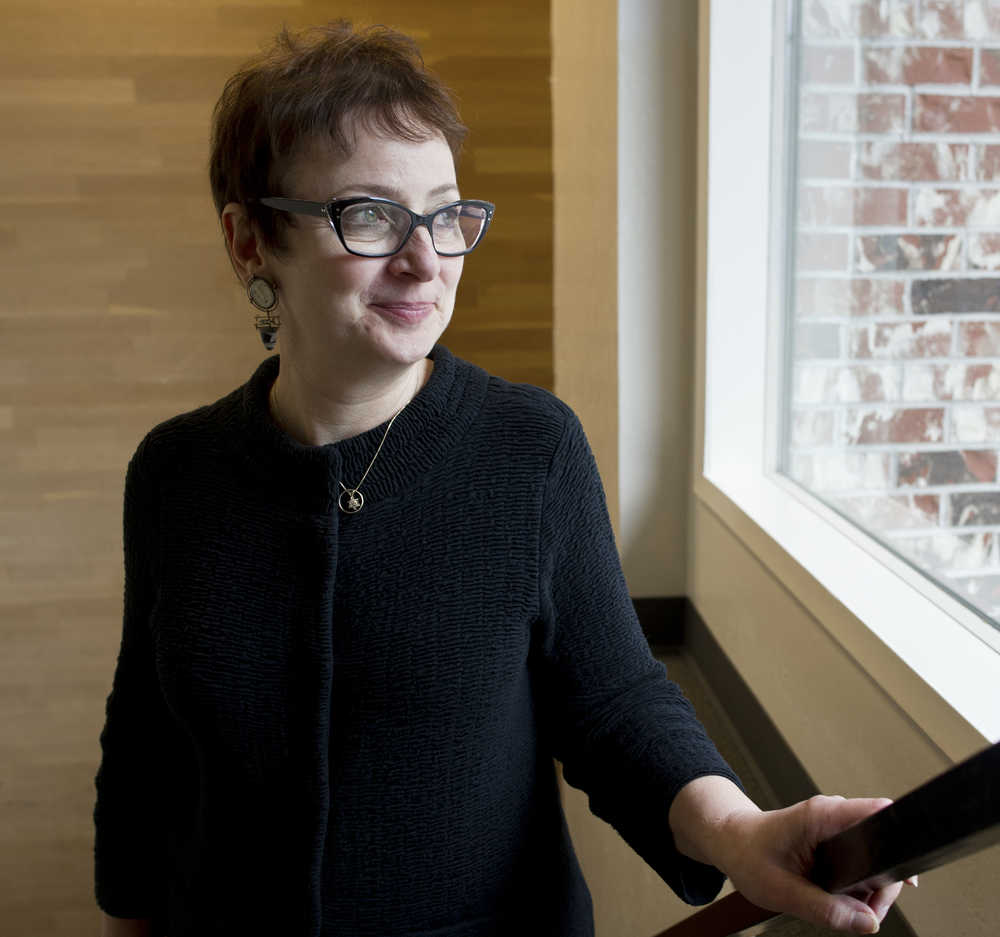In the spring of 2013, Sheryl Weinberg ran into a friend at a grocery store in Juneau. While catching up, each woman spoke about how they were feeling. Weinberg’s friend commented on how tired she felt and how much weight she had lost, while Weinberg mentioned how tired she felt and how much weight she had gained.
Neither knew at the time that they were discussing the symptoms of gynecologic cancer. They were both diagnosed within a week of each other in May 2013, Weinberg with endometrial cancer, and her friend with ovarian cancer.
Weinberg went alone to Anchorage for a biopsy. Dr. Joanie Hope, Weinberg’s doctor, laid out the extent of her cancer which had spread to 48 percent of her uterine wall and had grown to the size of a baseball. It was only a matter of days after her biopsy results when she was rushed into surgery. She also underwent internal beam radiation therapy.
Weinberg said she never got to see her friend again. “She passed away the day I started my radiation treatment,” she said.
The experience of having cancer and losing a friend to it changed Weinberg’s life.
Now Weinberg, 61, is over two years cancer free and an advocate for cancer awareness. She works as the executive director of SERRC – Alaska’s Educational Resource Center, which occasionally brings her to Anchorage where she also gets to participate in meetings as a board member for Let Every Woman Know, a statewide organization that promotes awareness of gynecologic cancer and provides support for survivors. This year, Weinberg was selected as the Survivor of the Year by Cancer Connection, a local non-profit which provides awareness, education, resources and support to cancer patients in Juneau and Southeast Alaska.
Together, they brought the documentary “No Evidence of Disease” to Gold Town Nickelodeon Theater, a film about six gynecologic cancer surgeons forming the band N.E.D. to bring hope and awareness about gynecologic cancer.
One of the doctors in N.E.D. was Weinberg’s surgeon, Dr. Hope, who asked Weinberg to speak at the Juneau showing of the film. Weinberg hadn’t previously been vocal about her experience with cancer.
“My mom had me very late in life and when she spoke about her own cancer or the cancer in her family, it was with a whisper,” Weinberg said. “He had cancer, she has cancer, they have cancer, I have cancer,” Weinberg imitated in a whisper. “It was like it was almost something to be ashamed of. I never felt ashamed of having cancer, but I didn’t want it to define me and I didn’t speak about it. But it does define me in that I think about it every day. It’s something I hope I don’t experience again and no one I care about does. The reality is that a lot of people I know and love are going to have cancer in my lifetime. I think the more we know about it, the more we pay attention to the possible signs of this type of cancer, or any other kind of cancer the more likely we are able to intervene early.”
Weinberg was aware of her risk for cancer. Many people in her family had various forms of it. She followed a check-up schedule in her 20s, but not for the cancer she got diagnosed with.
Weinberg said she was told by Dr. Hope that she probably had lived with cancer for a while.
“That’s part of why I’m so interested in the awareness,” Weinberg said, “that I was having symptoms but didn’t realize they were symptoms, didn’t even think to talk to my GP about. I had bleeding occasionally, and I had attributed it to the fact that I was getting older. I really didn’t even think to mention it. … It was only until the symptoms became painful and extreme that I knew something was terribly wrong.”
Weinberg also pointed out how it can be seen as taboo to talk about female genitalia and reproductive organs but it shouldn’t be. Let Every Woman Know pushes for women “to be aware down there,” Weinberg said.
She advised all women to be aware of their symptoms, pay attention to their bodies and to get anything unusual checked out.
“Don’t think it can’t happen to you because it can happen to any of us,” She said. “If you have the sense something is not right, go back. Be an advocate for yourself. Push to get diagnostic testing done because in many cases that personal intuition has been correct.”
Weinberg advised people to not go through the experience of having cancer by shutting loved ones out. She had gone to Anchorage alone for her procedure, received the results and had to process it by herself. Looking back, she said she wished she brought her husband with her, who she describes as “very supportive.”
To those diagnosed with cancer, “don’t suffer in silence,” Weinberg said. “Continue to take care of yourself, to ask for help, to ask for support. I think a lot of times we are brave and in being brave we cut off our nose to spite our face. There are people just waiting for you to tell them what to do, to help you — take advantage of that. Let the people who love and care about you love and care about you. To ask questions. To advocate for yourself. To talk about it. To talk with other survivors.”
• Contact Clara Miller at 523-2243 or at clara.miller@juneauempire.com.

